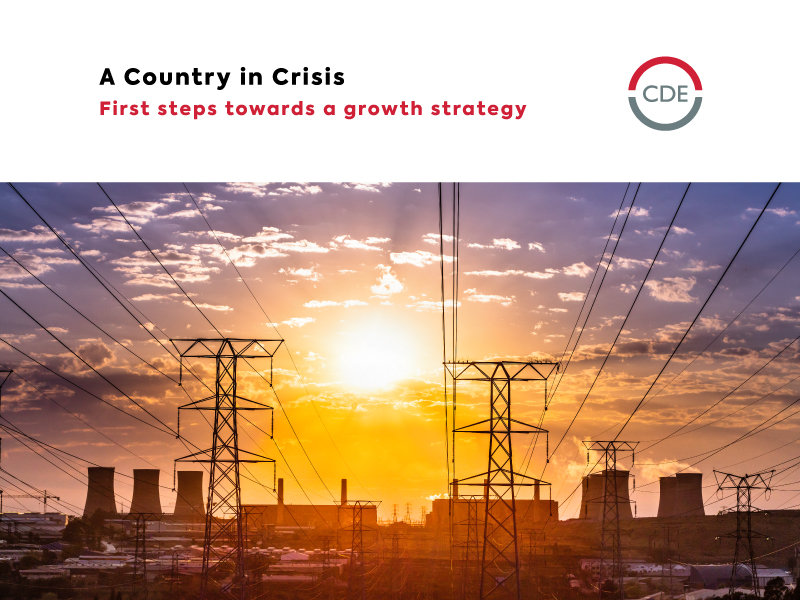
“There are no simple models that can be borrowed from Brazil to help drive South Africa’s bid to alleviate poverty and inequality”, said Ann Bernstein, executive director of the Centre for Development and Enterprise (CDE).
She was commenting on a new report released today by CDE, Reflecting on Brazil’s Success. How durable? What Lessons for South Africa? The report summarises a Round Table discussion held earlier this year by the CDE involving four pre-eminent Brazilian experts together with leading South Africans in government, business and civil society.
“Brazilian achievements include raising more than 40 million people into the middle-class in the past ten years; lowering poverty levels from 23 to 8 per cent of the population in less than two decades; lowering unemployment rates to 6 per cent.
“These impressive facts should serve as a source of inspiration for South Africans. Brazil demonstrates that it is possible to change the prospects of tens of millions of poor people, bring down unemployment, reduce poverty and start to turn the tide on inequality,” Bernstein says.
“The good news from Brazil is that it can all be done in a reasonably short period of time and without fixing everything simultaneously. South Africans need to learn the right lessons from the Brazilian experience and then adapt these for our particular circumstances. It is important to recognise that the factors behind Brazil’s achievements are complex and rooted within a different context from South Africa’s.
“There are enough differences between Brazil and South Africa to ensure that simply transferring a set of policies from one country to another is unlikely to work”, says Bernstein.
She also said it is also important not to exaggerate Brazil’s achievements. Large parts of the ‘new middle class’ are heavily in debt and therefore at risk of sliding back.
“To gain a balanced perspective of the Brazilian situation we need to understand the many challenges that Brazil still needs to overcome. Brazil’s economic growth rate between 2005 and 2010 was solid rather than spectacular – not much higher than our own. The economy remains vulnerable to shifts in the global economy and domestic reforms have not gone far enough to create the type of business environment required to raise the rate of investment. In the long run, Brazilian growth will only be sustained if the economy becomes more productive. This will require tax, labour and other reforms including significant infrastructure investment” she says.
“Simply copying Brazilian policies is a potentially perilous path for South Africa. For example the large Brazilian development bank, BNDES, and its concessionary finance programme, is not appropriate for South Africa, which does not have Brazil’s high rates of real interest. BNDES has also not succeeded in raising investment rates in Brazil and has inadvertently worked to crowd out smaller firms. Tax payers have ended up subsidising the largest companies in the country like Vale, who can get financing anywhere they want”.
“Surely this is not a model for this country,” says Bernstein
The CDE argues that while Brazil’s fight against poverty reveals that welfare grants can be helpful, they need to be modest, affordable and importantly, accompanied by an expansion of economic opportunities accessible to the poor. Coupled with an innovative approach to welfare, Brazilians have focused on what they call, ‘productive inclusion’, developing the economy to create income generating opportunities for poorer and less skilled people.
South Africa’s welfare programmes are amongst the most generous of all developing countries. Despite these high, increasingly unsustainable payments, poor South Africans remain trapped without much hope. With very poor education and a capital intensive economy the vast majority cannot access wage or other income earning opportunities – the key variable in getting Brazilians into the lower middle class.
Bernstein says: “The South African poor therefore remain dependent on the state indefinitely and are unable to find a durable path out of poverty.”
“The state is a large player in the Brazilian economy. One success story is the state-owned Brazilian agricultural agency EMBRAPA which established a productive partnership with large commercial farmers and helped to revolutionise Brazilian agriculture. However a critical component of EMBRAPA’s success is Brazil’s considerable skills base. EMBRAPA employs around 6 000 people with PhDs.
South Africa on the other hand is frequently constrained by not having the necessary skills for R and D. If South Africa wants to grow its economy it has to address the skills constraint – through education reform and a massive infusion of foreign skills”, Bernstein says.



